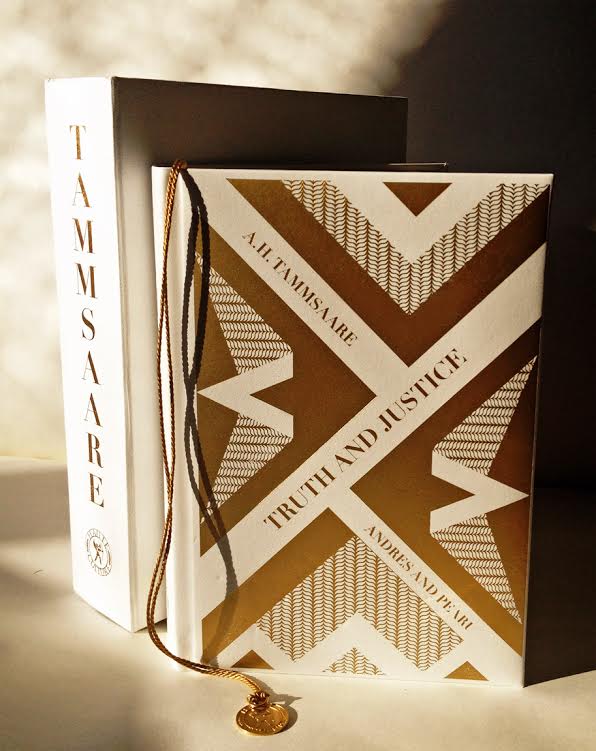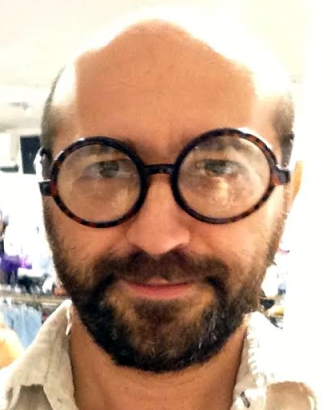
Biblioklept: What is Haute Culture Press?
Luis de Miranda: Haute Culture is a new venture in luxury publishing with a mission to bring masterpieces of global literature to English-speaking readers around the world. Since your site is called “Biblioklept,” I’ll start by saying that we are a new kind of Robin Hood: we give to both the “poor” and the “rich.” We offer free e-books to the modern global reader interested in discovering hidden gems of classic European literature and, simultaneously, we offer individuals of greater means the opportunity to become mini-Medici’s, actively supporting culture while enjoying a luxurious limited edition book that will increase in value year after year.
This model is summed up in our slogan: Physical books should be sublime, digital books should be free. The sales of our limited luxury editions—each a distinctive art object—support the distribution of free e-books for each of our titles. Buyers of our limited editions, in effect, become benefactors—or “Book Angels,” as we call them. I believe this model will satisfy collectors and book lovers.
Furthermore, as e-books become cheaper and cheaper, I want to create a model that does not depend on the diminishing revenues of e-book sales and allows us to reach as many readers as possible, particularly younger readers. If we want younger generations to read quality literature, and not just the latest bestsellers, free e-books are the way to go.
Biblioklept: Is the possible disconnect between electronic books and “luxury” an issue? Does this new publishing model privilege the book as an aesthetic object?
LdM: This model privileges the free distribution of quality literature and it reinvents the physical book as a cult object. I aim to create unique objects that make the poetry of texts tangible. As we all spend more time in front of screens, I believe that the experiential aspect of the printed book will become more important, with readers looking for a higher quality object. I foresee the return of the “gentleman’s library” (or “gentlewoman’s library”), with fine leather volumes and limited editions—the polar opposite of e-books. Our limited editions will embody my great respect for the ritual of reading and for the craftsmanship of book making, while at the same time subsidizing the free distribution of our e-books and building a new global audience for iconic European literary masters.
Biblioklept: Is Haute Culture the first group to employ this model, to your knowledge?
LdM: Yes. We are innovating and experimenting. I don’t know if ours will be an economically viable model in the end, but it is definitely a desirable one. Since we are exploring uncharted territory, we have to take things step by step. We are avoiding the established highways over artificial ponds, and attempting to build our own bridge. We might fail or we might create a new path that the others will soon follow.
Biblioklept: Why did you choose A.H. Tammsaare’s Truth and Justice as the first book in this series?
LdM: Our first publication is actually a new translation and an ultra-limited bilingual edition of the Flaubert novella, Felicity: The Tale of the Simple Heart. In December 2013, it will be on sale at Assouline Boutiques in New York, Los Angeles, London, and Paris.
Volume I of Tammsaare’s Truth and Justice is planned for publication in 2014. It is a fine example of an untranslated classic. Tammsaare himself is an icon of 20th century Estonian literature. Two museums, a monument, and a park in the center of Tallinn are all dedicated to him. Unlike some traditional classics, which are widely referred to but rarely read, his masterpiece, Truth and Justice, still retains its place at the front of Estonian bookshelves and yet this epic work has never been translated into English. I also have some personal reasons for launching the press with an Estonian icon like Tammsaare. I wrote my last novel in Estonia three years ago and I wanted to pay homage to the land that inspired me.
Biblioklept: What is Tammasaare’s book about? Why is it important?
LdM: Truth and Justice is considered Tammsaare’s most important work. It was written during the rise of dictators—Hitler, Stalin, Mussolini—and it captures the evolution of Estonia from Tsarist province to independent state. Though it’s deeply rooted in Estonian peasant life, the first volume deals with timeless literary and philosophical issues, developing a vigorous, straightforward narrative that addresses the dual nature of the human psyche.
The book’s characters, storylines, and language continue to inform Estonia’s culture today. References to Truth and Justice are pervasive, and one hears its echoes in contemporary Estonian literature, as well as other art forms. One need only call two men “Andres and Pearu” for any Estonian to understand the nature of their relationship.
Volume I presents life in an Estonian village, as farmers battle against nature during the last quarter of the 19th century. The two main characters, both unique and powerful men, represent the essential conflicts of human nature: not only good vs. evil, but also hope vs. conservatism, conquest vs. pettiness. The saga explores how human impulses compete with each other and complete the characters.
Although the first volume seems entirely dedicated to peasant life in rural Estonia at the threshold of modernity, the book deals with fundamental issues that are quite relevant today. You might say this book reflects what we are trying to do at Haute Culture. Truth and Justice is a story of simple people who work the land endlessly, striving to build a world were truth and justice prevail, where good is fostered and protected, not killed by conformity or lack of courage. Beautiful things grow slowly like plants. Perhaps this is a lesson for all the capitalists of the world.

Biblioklept: What future plans do you have for Haute Culture? What other books would you like to publish?
LdM: We are currently translating a Russian book by the cult novelist Yuri Mamleyev, called Shatuny. We are working with one of the best Russian to English translators, Marian Schwartz, who translated Bulgakov and Berberova. Shatuny is a mind-blowing, hallucinatory story about the quest for absolute truth. Maybe we are obsessed by truth?
Bringing untranslated texts to English readers around the world is one aspect of a wider mission to bring singular, fine, original works to the global corpus. That has always been my goal—to democratize access to culture. I’ve been to the Frankfurt Book Fair many times and met with publishers and agents in New York. I’ve noticed not only that many great European works have not been translated to English, but also that the mainstream US and UK publishers tend to translate only genre bestsellers—thrillers for example.
English is now the international language and I believe it’s possible, and indeed essential to bring to the international psyche works that aren’t standardized and cliché, but truly represent a unique viewpoint. I plan to build a catalogue that only includes masterpieces. Publishers who rely on the old publishing model must often publish potential bestsellers they secretly despise, yet there are so many excellent contemporary classics waiting to be discovered and translated into English. With Haute Culture, I refuse to compromise. Literature has the potential to create a more diverse and interconnected world, but in order to reach that potential we must fight against a profit-driven culture.
Biblioklept: Have you ever stolen a book?
LdM: When I was 18, I had a summer job at a bookshop in the Pompidou Center in Paris. At the end of my first day, I took about 20 books home with me, feeling that I had found Ali Baba’s cave, but a few days later I felt guilty and replaced all the books on their shelves.

I approve of this.
Recently my girlfriend bought me a kobo glo and my reading has kind of skyrocketed. I’ve read a book every day or two over the past month- interesting ones like Stoner and Near to the Wild Heart. It has definitely replaced about 90% of my book purchases but I do wish there were more fringey literature ebooks available. It would be great if guys like Dalkey, New Directions and New York Review of Books started aggressively converted their catalogues and offered them at reasonable prices like $5. Mulligan Stew or The Public Burning as commercial ebooks would make my day.
I only have a couple of issues with ebooks- the books never hyperlink to the appendixes which is crucial for stuff like untranslated Latin in novels like Ulysses and I can’t revel in the company of my library of geek out about recent acquisitions.
Besides that I love them and they are quickly expanding my horizons in the same way MP3s did for me almost 15 years ago with music.
LikeLike
Quote: Besides that I love them and they are quickly expanding my horizons in the same way MP3s did for me almost 15 years ago with music.
Exactly how I feel. Well put.
Frown if you like, but thank god for file sharing book sites.
LikeLike
By what definition is 5 bucks a reasonable price for an ebook?
LikeLike
What an exciting model. I support this 100%, and definitely intend to check out whatever they put out there. I really wish them success in this.
LikeLike
Having said that and then checking the prices, as much as I’d love to, I’d not nearly be able to afford to actually buy one of the physical books but regardless, I’m in support of this.
LikeLike
Reblogged this on Progressive Geographies and commented:
Interesting interview on publishing books.
LikeLike
This is a good read.
LikeLike
[…] “Physical books should be sublime, digital books should be free” |Haute Culture Publishe… […]
LikeLike
[…] Dan nog een ‘leeswijzer’, dus het omgekeerde van wat nu gebeurt: https://biblioklept.org/2013/12/02/physical-books-should-be-sublime-digital-books-should-be-free-haut… […]
LikeLike